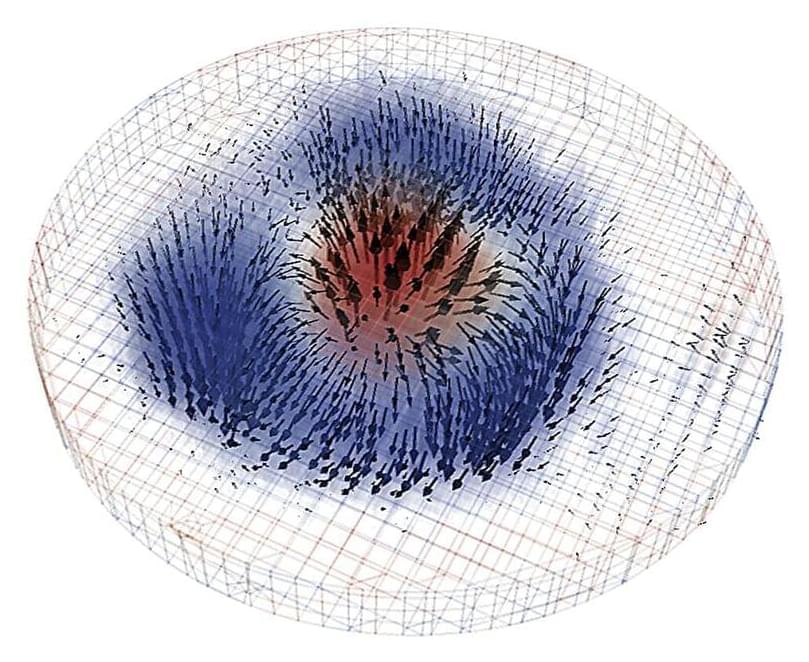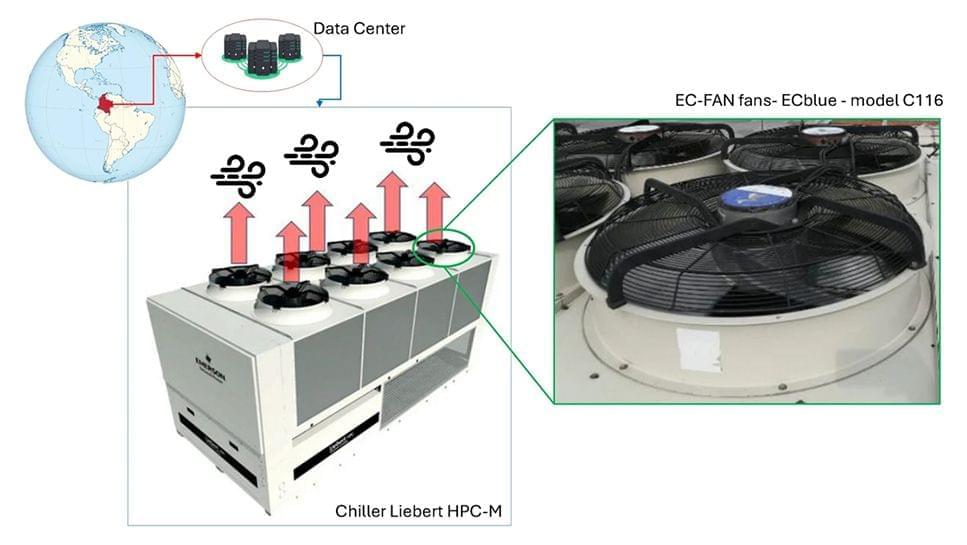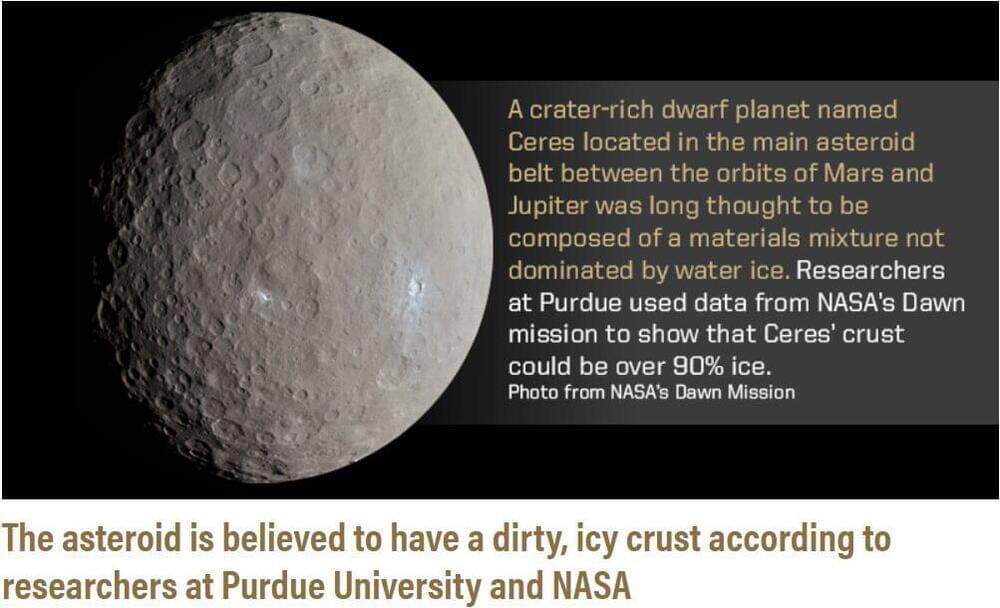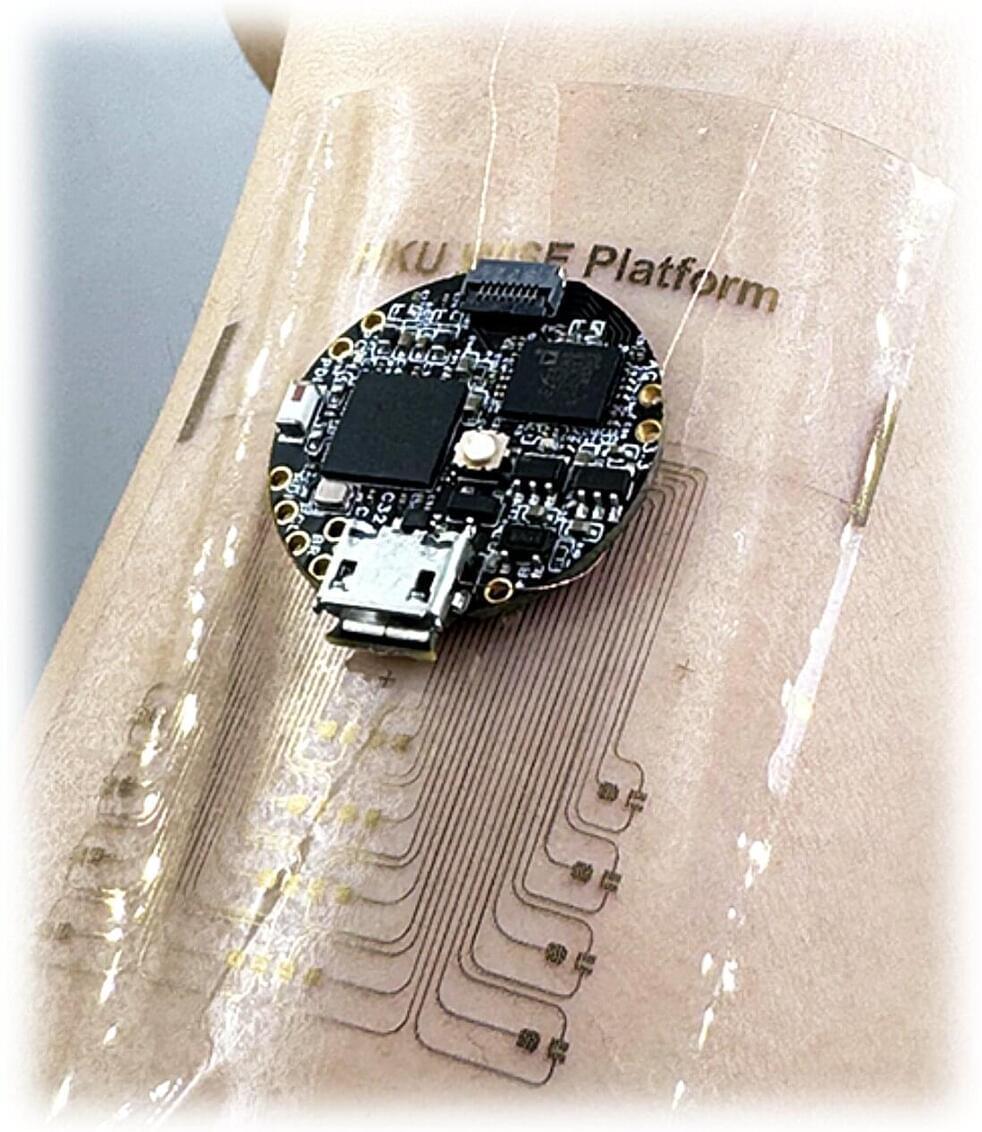Pioneers of quantum computing have shared their dreams and skepticism about the fledgling industry, while Gov. JB Pritzker said he thinks it’s already attracting companies to Illinois.




HVAC systems common in data centers expel warm air outdoors, creating a consistent, untapped wind resource that can be converted into electricity. In a case study of a Colombian data center, the researchers used vertical axis Tesup V7 wind turbines to capture this man-made waste wind. The turbines, installed atop chillers, were chosen because they minimized size and weight while maximizing electricity generation.
The amount of gross electricity produced annually by six wind turbines was 513.82MWh from artificial airflow, exceeding the energy consumption of the facility’s fans, and providing a surplus of 131.2MWh. The authors suggest this recycled energy can be used for other electrical needs within the data center or be injected into the electrical grid.
The study, published in the journal Scientific Reports, also highlighted the economic and environmental benefits. A positive cash flow is achieved by the third year, with an impressive internal rate of return of 50.69%. Environmentally, the system reduces CO2 emissions by approximately 300 metric tons annually.

Since the first sighting of the first-discovered and largest asteroid in our solar system was made in 1801 by Giuseppe Piazzi, astronomers and planetary scientists have pondered the make-up of this asteroid/dwarf planet. Its heavily battered and dimpled surface is covered in impact craters. Scientists have long argued that visible craters on the surface meant that Ceres could not be very icy.
Researchers at Purdue University and the NASA’s Jet Propulsion Lab (JPL) now believe Ceres is a very icy object that possibly was once a muddy ocean world. This discovery that Ceres has a dirty ice crust is led by Ian Pamerleau, Ph.D. student, and Mike Sori, assistant professor in Purdue’s Department of Earth, Atmospheric, and Planetary Sciences who published their findings in Nature Astronomy. The duo along with Jennifer Scully, research scientist with JPL, used computer simulations of how craters on Ceres deform over billions of years.
“We think that there’s lots of water-ice near Ceres surface, and that it gets gradually less icy as you go deeper and deeper,” Sori said. “People used to think that if Ceres was very icy, the craters would deform quickly over time, like glaciers flowing on Earth, or like gooey flowing honey. However, we’ve shown through our simulations that ice can be much stronger in conditions on Ceres than previously predicted if you mix in just a little bit of solid rock.”
The latest generations of Intel processors, including Xeon chips, and AMD’s older microarchitectures on Linux are vulnerable to new speculative execution attacks that bypass existing ‘Spectre’ mitigations.
The vulnerabilities impact Intel’s 12th, 13th, and 14th chip generations for consumers and the 5th and 6th generation of Xeon processors for servers, along with AMD’s Zen 1, Zen 1+, and Zen 2 processors.
The attacks undermine the Indirect Branch Predictor Barrier (IBPB) on x86 processors, a core defense mechanism against speculative execution attacks.


Predicting the behavior of many interacting quantum particles is a complex task, but it’s essential for unlocking the potential of quantum computing in real-world applications. A team of researchers, led by EPFL, has developed a new method to compare quantum algorithms and identify the most challenging quantum problems to solve.
Quantum systems, from subatomic particles to complex molecules, hold the key to understanding the workings of the universe. However, modeling these systems quickly becomes overwhelming due to their immense complexity. It’s like trying to predict the behavior of a massive crowd where everyone constantly influences everyone else. When you replace the crowd with quantum particles, you encounter what’s known as the “quantum many-body problem.”
Quantum many-body problems involve predicting the behavior of numerous interacting quantum particles. Solving these problems could lead to major breakthroughs in fields like chemistry and materials science, and even accelerate the development of technologies like quantum computers.

Researchers have achieved a breakthrough in observing intrinsic magnetic structures in kagome lattices, which may significantly influence future quantum computing and superconductivity applications.
A research team led by Prof. Qingyou Lu from the Hefei Institutes of Physical Science at the Chinese Academy of Sciences, in collaboration with Prof. Yimin Xiong from Anhui University, has achieved a groundbreaking discovery. Using advanced techniques such as magnetic force microscopy (MFM), electron paramagnetic resonance spectroscopy, and micromagnetic simulations, they have made the first-ever observation of intrinsic magnetic structures within a kagome lattice.
These findings, published recently in Advanced Science, shed new light on the behavior of materials, which is largely determined by the interaction between their internal electrons and lattice structure. Kagome lattices, known for their unique properties like Dirac points and flat bands, display extraordinary phenomena such as topological magnetism and unconventional superconductivity. These lattices are of great interest because of their potential to unlock new insights into high-temperature superconductivity and quantum computing. Despite this, the intrinsic spin patterns that define these materials have remained elusive—until now.

NASA has temporarily halted operations of its quantum computer after it produced unexpected results. The computer, which is still under development, is designed to simulate complex systems such as those found in space. However, during a recent test, the computer-generated results that were inconsistent with known physical laws.
NASA scientists are currently investigating the cause of the anomaly. They are also working to develop safeguards to prevent similar incidents from happening in the future.
The shutdown of the quantum computer is a setback for NASA’s efforts to develop new technologies for space exploration. However, it is also an opportunity to learn more about the potential of quantum computing.

Organic electrochemical transistors (OECTs) are neuromorphic transistors made of carbon-based materials that combine both electronic and ionic charge carriers. These transistors could be particularly effective solutions for amplifying and switching electronic signals in devices designed to be placed on the human skin, such as smart watches, trackers that monitor physiological signals and other wearable technologies.
In contrast with conventional neuromorphic transistors, OECTs could operate reliably in wet or humid environments, which would be highly advantageous for both medical and wearable devices. Despite their potential, most existing OECTs are based on stiff materials, which can reduce the comfort of wearables and thus hinder their large-scale deployment.
Researchers at the University of Hong Kong have developed a new wearable device based on stretchable OECTs that can both perform computations and collect signals from the surrounding environment. Their proposed system, presented in a paper published in Nature Electronics, could be used to realize in-sensor edge computing on a flexible wearable device that is comfortable for users.